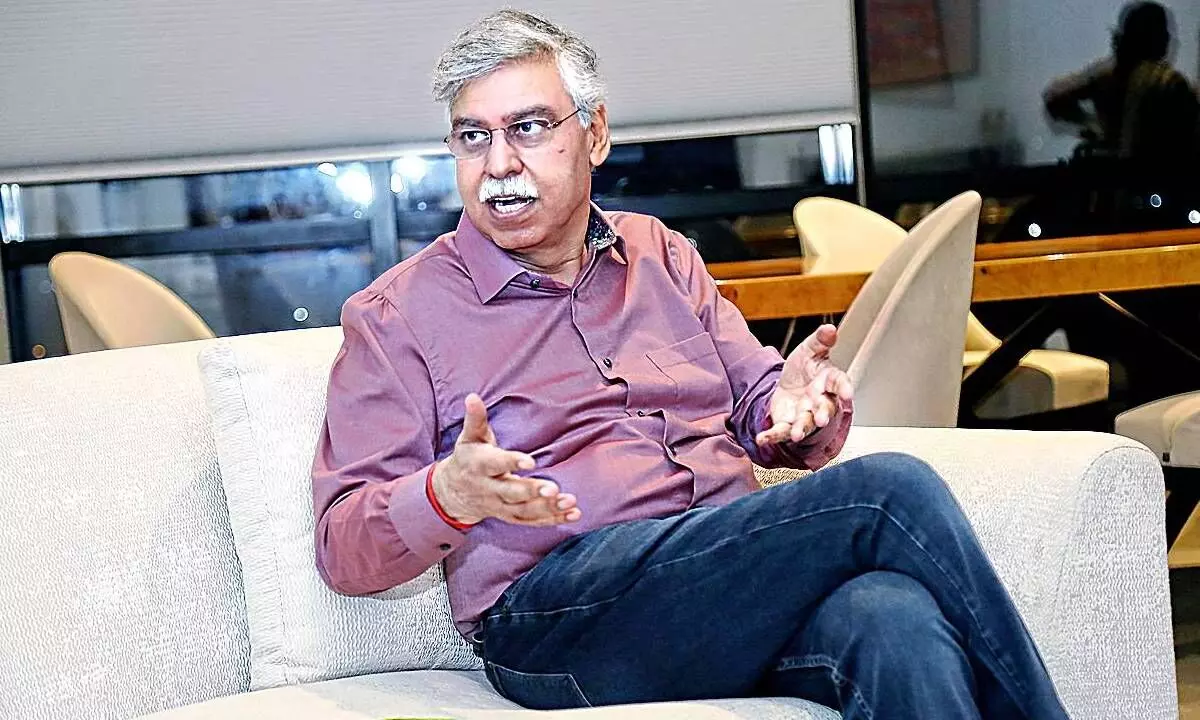Loving the arts, the corporate way
While stressing that not just corporates, but everyone has a responsibility towards the arts, Sunil Kant Munjal, the Founder Patron of Serendipity Arts Festival (SAF), held annually in Goa feels that though the government has an important role in promotion of the arts, it is high time corporates came forward to play theirs
image for illustrative purpose

New Delhi, Jan 1: While stressing that not just corporates, but everyone has a responsibility towards the arts, Sunil Kant Munjal, the Founder Patron of Serendipity Arts Festival (SAF), held annually in Goa feels that though the government has an important role in promotion of the arts, it is high time corporates came forward to play theirs.
"Considering they have a larger responsibility in society, thus their roles towards the arts, too, becomes increased," he tells IANS during the recently concluded SAF.
Talk to him about deciding on a non-metro destination for the festival, and he is clear that the effort was not to 'move away' from anywhere, in fact, Goa was chosen owing to its unique micro-culture.
"People from across the country have moved and settled here. Not to mention, our partnership with the Goa government has been excellent. If you have noticed, most of the venues are heritage buildings."
Even as getting a hotel room in Panjim becomes a struggle during the festival days, the patron smiles, "Yes, the festival has helped the local economy, bringing in tourism. The general population sees the festival as their own which is an achievement."
The Chairman of Hero Enterprises, admits that it has been an intentional move not to brand his company at SAF.
"It is deliberate as we do not want to turn this into a corporate programme."
"SAF is held with the sole aim of promoting the arts and the access to art. If we start branding our company, it takes away many things from the festival. We have invited other corporates to come. Our message is clear -- arts need patronage."
Mahindra, which holds several festivals across the country at different times including the popular 'Kabira Festival', 'Santatkada Festival', 'Blues Festival', 'Roots Festival', 'Percussion Festival', and 'Excellence in Theatre Awards', and just prefixes 'Mahindra' before each one, ensures that the brand's products are not promoted in any way at these popular festivals.
Jay Shah, Vice-President -- Cultural Outreach of the brand, stresses the return to the brand in terms of value is when people recognise that they have been subtle.
"And that comes back in many ways. Frankly, with all these festivals, we want the audience to focus only on art and culture and do not want the festival to be lost just because we want brand exposure. I firmly believe that if we start exposing our brands here, the same will bring a negative value," he says.
About how these festivals, many held in non-metro cities, are accelerating the growth of the local economy, Shah cites, "As soon as we put out the announcement for the 'Kabira Festival', our partner hotels sold out in minutes. Many other hotels witnessed a huge rush in bookings. And it is not just to do with the economy. We also do a lot of community outreach and hold workshops with children. Schools also come and perform. There are always some local names."
Shah feels it is important to look beyond metros but each destination is not a draw of lot.
Stressing that locations are decided strategically, he cites an example, "Realising that we did not have a festival in the South, Bangalore became a destination. Also, to cater to Generation Z, Mahindra got into rock and percussion."
For someone like Sanjoy Roy, Managing Director of Teamwork Arts, which produces more than 25 performing arts, visual arts, and literary festivals across 40 cities, including the famed Jaipur Literature Festival (JLF), the effort is to create more opportunities and create value for heritage and local economy.
Believing that metros are not festival cities, Roy who is set to start festivals in Madurai, Hampi, and Bengal now says, "Take the example of Varanasi, where we produce the 'Mahindra Kabira Festival'. It is a festival city which has heritage and history. In such cities, people quickly 'adopt' the festival as their own, and the latter keeps reinventing itself, which is very interesting. The effort is to ensure that we work with the locals and bring people who otherwise won't have a platform."
Currently writing a book on his experiences with the supernatural -- from Kolkata to Jerusalem, he says that while they look at the government for permissions, etc, more corporates must start supporting the arts.
"They can use it to build trust and also give back. Over the past few decades, there has been a definite increase in the number of corporates backing art festivals. We just hope that the graph keeps going up," he concludes.

